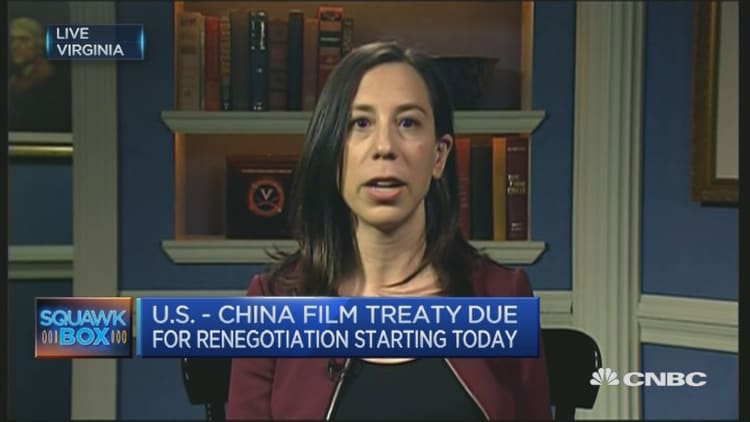
A film agreement between the U.S. and China expires today, paving the way for a new round of talks that could mark the first major deal between the two economic giants under the administration of U.S. President Donald Trump.
Under the agreement reached by former vice president Joe Biden and Chinese president Xi Jinping in 2012, the quota for U.S. films into China rose to 34 from the previous 20.
China's Communist Party-owned newspaper, the Global Times, said the world's second largest economy was likely to raise the quota, and cited experts predicting the addition of a dozen films. Foreign producers will also be getting closer to 40 percent of ticket sales revenues, comparable to what they get in other overseas markets, up from the 25 percent they are getting from China now, the paper added.
"There is a lot of interest on the Chinese side to potentially increase the number of Hollywood films that are represented in the market," Aynne Kokas, assistant professor of Media Studies at the University of Virginia. The quota was in fact exceeded by six last year, she added.
Trump's call with Xi last week when he softened his stance on Taiwan and agreed to honor the longstanding "one China" policy also bodes well.
"There is potential to find trade winds on both sides with the renegotiation of the treaty," Kokas said.
China's cinema ticket sales slowed last year, rising 3.2 percent against the year before to 45.3 billion yuan ($6.6 billion), according to data from box office tracker EntGroup. That compared to nearly 50 percent growth in 2015.
Industry players however are still upbeat about the outlook for the East Asian market, which box office is tipped to overtake that in the U.S. as soon as this year.
The market is also becoming increasingly important for Hollywood, helping to add $1.8 billion in ticket sales to Hollywood's 20 highest-grossing films in 2016, according to calculations from Reuters.
There are also expectations of more Hollywood-China co-productions such as The Great Wall starring Matt Damon to draw Chinese moviegoers. However, whether it would be classified a foreign or domestic film in China is one that only Chinese authorities can decide.
"Within the Chinese domestic context, there is this idea that protecting domestic culture and creating culture domestically is actually a form of national security…Hollywood studios don't think in terms of cultural security or U.S. national interest when making films. They are really just looking to expand their box office, whereas Chinese companies really have a lot more responsibility with regard to what they have to do with that," said Kokas.

